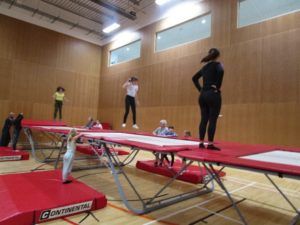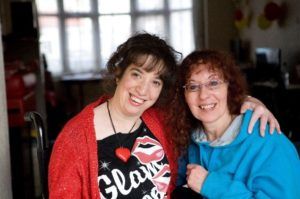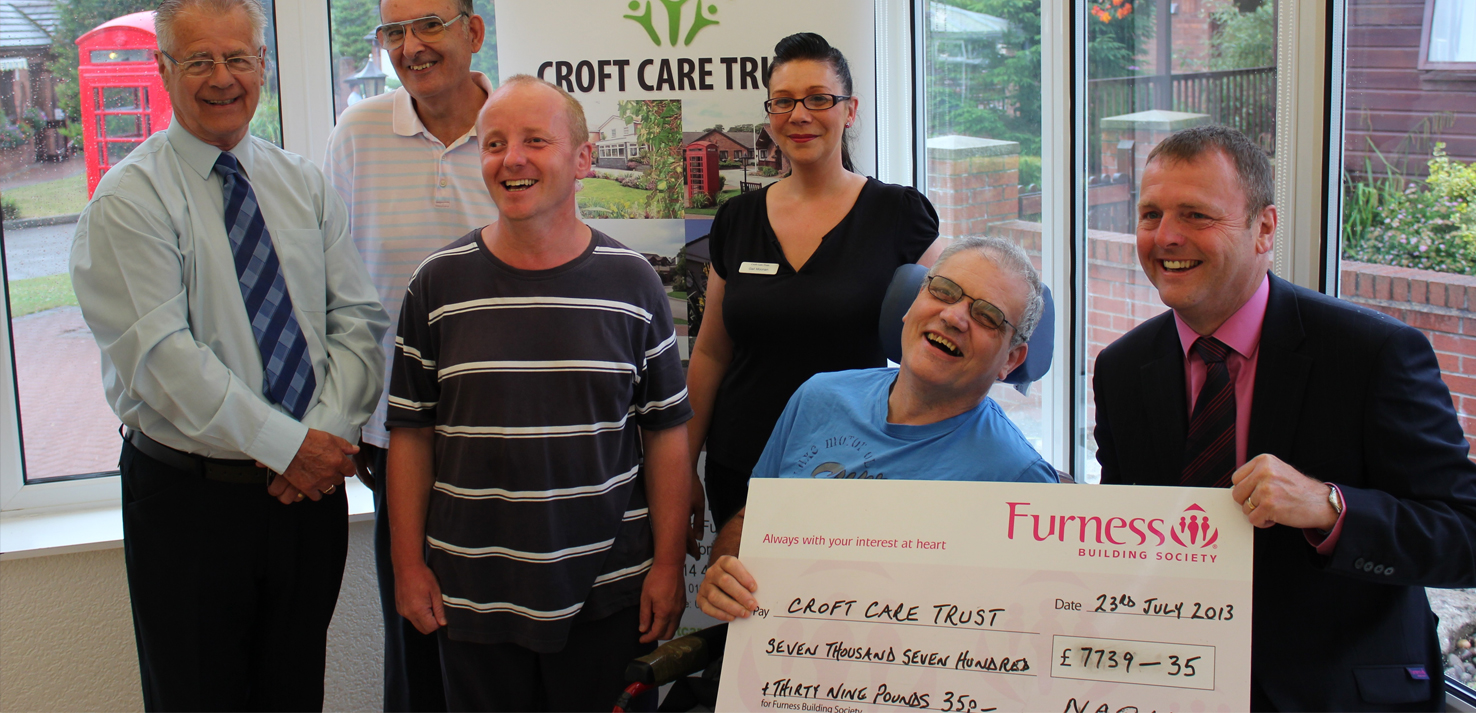Category: copeland
Funding available for community projects supporting architectural merit in Cumbria
Community projects of architectural merit in Cumbria are being encouraged to apply for financial support from a fund set up in memory of a much-love father.
The Geoffrey Blake Architectural Heritage Fund, managed by Cumbria Community Foundation, was set up by a daughter in loving memory of her father, who had a long-standing interest in historical architecture.
Community projects run by voluntary or charitable groups that support architectural merit and enhance people’s experience and understanding of the built environment are welcome to apply.
Projects must have full access to the public and have a clear benefit to the community.
The Foundation is eager to hear from projects that include the renovation of community features and landmarks, e.g. wells, crosses and memorials, the renovation of features of public buildings or the creation of new work including sculptures and other built features.
The first grant was awarded to Fitz Park Charitable Trust for the refurbishment of the exterior of PUPS Shelter in Keswick.
The shelter was built in 1939 by the Pushing Young People’’s Society (PUPS). Their aim was to provide activities and engagement for young people by carrying out charitable work and raising money to build the shelter in Fitz Park near to the War Memorial.
A spokesperson for the Fitz Park Charitable Trust said:“Fitz Park Trust is grateful for the support of Cumbria Community Foundation as it will ensure that the shelter is restored as close to the original in design and purpose as possible.
“The grant will have a huge benefit in restoring this heritage asset in Keswick. It will take the shelter from a run-down structure, which is now looking very tired, and improve the overall street scene in an area, making this area a more attractive place to encourage people to meet up as well as place for quiet reflection.”
Since 1999, the Foundation has been bringing people who love Cumbria together to make the county stronger, so Cumbria can thrive and meet the challenges communities face and achieve their full potential.
Annalee Holliday, Grants & Programmes Officer at Cumbria Community Foundation, said: “This fund provides valuable funds for projects of architectural merit in Cumbria. It is important that people can experience local heritage and it’s great that we have a fund that supports the renovation of community features and landmarks.”
For more information or to apply visit, http://www.cumbriafoundation.org or call Annalee Holliday, Senior Grants Officer on 01900 820827 or email Annalee@cumbriafoundation.org
The hidden heroes
In West Cumbria, there are currently around 1,700 young carers. Take Cara for example, she is 14 years old and devotedly cares for her mother who has a physical disability and uses a wheelchair. Without Cara’s devotion and motivation, there would be no one to do practical jobs around the home including washing, cleaning and food shopping.

West Cumbria Carers operates across Allerdale and Copeland and provides support to 1,900 adult carers and 300 young carers, some as young as five. Since 2006, the charity has received more than £256,000 to support carers in West Cumbria.

The one to one sessions really helped Cara when she was feeling stressed. She could talk to a support worker and they worked together to help her develop strategies to improve her emotional resilience and help her deal with stress.
Another young person who has benefited from one to one support is 11 year old Jessica. She is a young carer for her mother who has a mental health condition. Jessica doesn’t know if her mum will be at home or not when she returns from school. Her mum tries to shield her as much as possible but she knows that Jessica still worries about her. Jessica also worries about her own mental health and whether she will develop the same illness as her mum.
When Jessica first joined the young carer’s project, she was very shy and didn’t like to mix with the other children. Two years later, she is a regular at the groups and trips and has made lots of new friends. Jessica said: “It’s nice to be able to talk to other children who understand what it’s like to be a young carer.”

Support to adult carers includes driving carers to health appointments, providing volunteers to sit with people so carers can go out, and helping them access information, advice and services. The charity also provides training to local businesses to help them manage working carers in their workforce.
Andrea Carlton, a senior support worker, said: “Social isolation both for the carer and the cared for person is huge. We try to get people to come to us before their situation reaches crisis point. There’s a lot of people aged between 45-65 who are at the peak of their careers that are also in a caring role.”
Angela Longrigg, volunteer and projects coordinator, added: “We also have many ‘sandwich carers’ who have young children and are also caring for a parent. They have no time for themselves and tend to put their own health at the bottom of the list.”

Keeping the community together; ‘I have waited 26 years for a club like this’
A warm welcome and a room full of laughter is what awaits you at Mirehouse Residents Group in Whitehaven.
Formed in 2008, the committee of seven encourage local residents and agencies to implement projects and events that get generations working together to improve their quality of life and reduce social isolation.

Word quickly spread and members flocked in. The group started to plan for future activities and soon became a lifeline to many that may otherwise have become isolated from the community.
Since 2010, Mirehouse Residents Group has received £69,284 from the Foundation. The first grant enabled the local neighbourhood warden to relocate to the community centre and help address fears of crime in the community. Mirehouse is one of the most deprived wards in England and fear of crime is the biggest problem for its residents.
Grants have supported the running costs of the group and also the costs of community workshops such as poetry and song writing during National Poetry Week. This encouraged local people of all ages to take up creative writing.
Keith Cartner, Community Coordinator, said: “The project encouraged intergenerational activity, as well as improving basic skills in literacy and giving the residents the courage to put their work forward. It was the first time something of this nature had been tried in the heart of the community, and gave residents a first chance to engage in cultural performance and activity.

Jenny said: “Without the camaraderie created through Cumbria Community Foundation’s support, this could never have been imagined. Here is a poem from Jenny’s collection about her memories of one of Mirehouse’s community club’s:
The Calder Club was the place to go
The people of Mirehouse loved it so
Groups came from far and wide
Artists, singers, comedians, you were lucky to get inside.
People booked it for weddings, christening parties too
And some for funeral parties, which sadly wasn’t a ‘do’.
There was a lovely lounge, where people gathered for drinks and chat,
Men played cards and dominoes, while the women talked and sat.
There was badminton and bingo, a quiet snug to sit and browse,
To sit in peace and quiet, away from all the crowds
At Christmas there were parties, one for children too,
New Year’s Eve was a great night out, we were often there till two.
It was the best club in Cumbria and sadly now it’s gone,
But we will never forget the Calder Club,
For in our memories
It lives on.
Today you will find Edith Dickinson, a regular to Mirehouse Residents Group, sharing memories and tales of the past. She really does fill the room with laughter with her stories. Born in 1932, Edith has been a resident of Mirehouse for most of her life. She reminisces and remembers how ecstatic she was to move to the estate. Edith said: “The neighbours were all lovely. A lot of the people on the street have lived here as long as me, or longer. We talked to everybody; we knew everybody and talked over the fences. I have waited 26 years for a club like this!”

Alongside Food for Thought, the Fit for Life project has been getting families together for sessions incorporating health, exercise, cookery and other skills to help them towards a healthier lifestyle and increased confidence and self-esteem.

The area around Mirehouse cattle arch, used daily by school children and the community, had been littered with drug paraphernalia and attacked by vandals, and was ‘intimidating’ to older people. The youth group worked with The Colourful North to paint the walls of the arch, which has now become a much safer area to walk through as parents drop their children off and collect at school.
Mirehouse Residents Group continues to grow, and this group proves its residents are proud to live there and work as a community for the good of the neighbourhood.
Cumbria Young People’s Fund (Individuals)
The fund was created through an anonymous legacy gift of £1.2m – the donor was a retired teacher who cared passionately about helping young people. It aims to support applications which will make a difference to the lives of disadvantaged young people in Cumbria by supporting study or vocational training.
How much can you apply for?
• Maximum grant will normally be £2,000 and we expect to make no more than three grants but we would expect most awards to be in the region of £500 to £750.
Who can apply?
• Individuals aged 14-22 years living in Cumbria with priority given to young people from Barrow and Carlisle.
• Applicants will need to provide evidence of excellence in their chosen fields and/or evidence of how you will/are raising aspirations for young people in West Cumbria
Please refer to Cumbria Young People’s Fund (Individuals) Guidelines for full criteria before downloading the individual application form.
Cultural Fund
The Fund is the result of an initiative by Miss Mary Burkett and friends to help individuals in the arts. Its aim is to encourage individuals of excellence in their chosen field of the arts. Individuals are prioritised due to the comparative lack of funding available to them.
How much can you apply for?
• There is no maximum or minimum grant level, but the average grant is expected to be £500
Who can apply?
• Individuals resident in the county of Cumbria.
Please refer to Cultural Fund Guidelines for full criteria before downloading the individual application forms.


